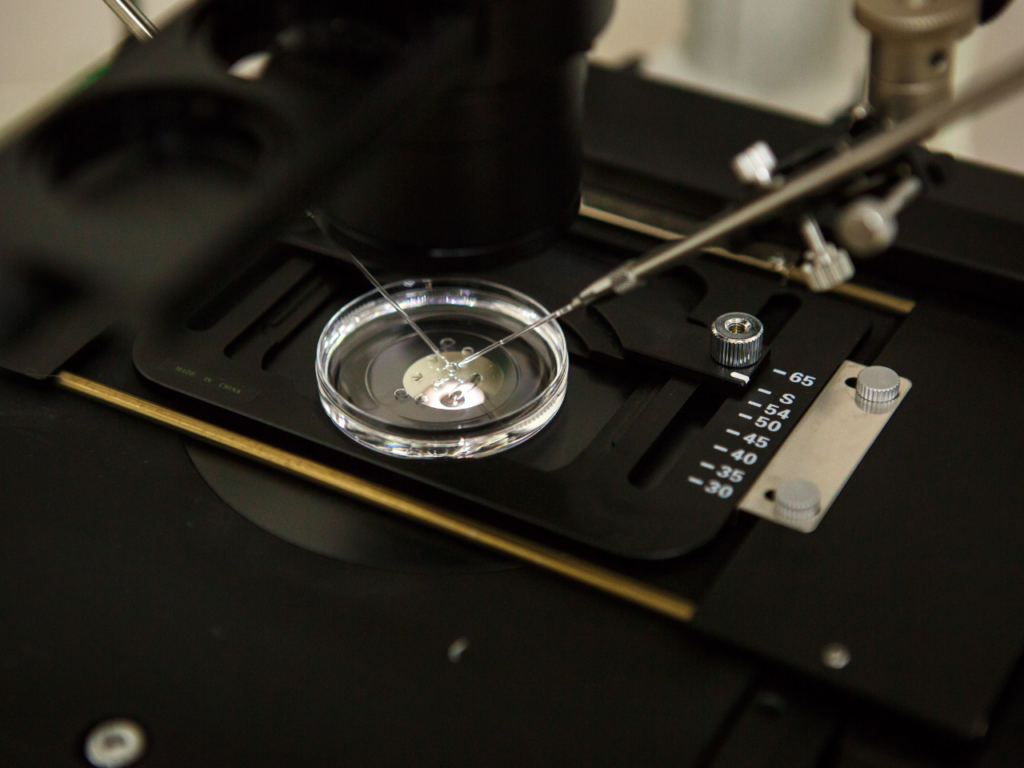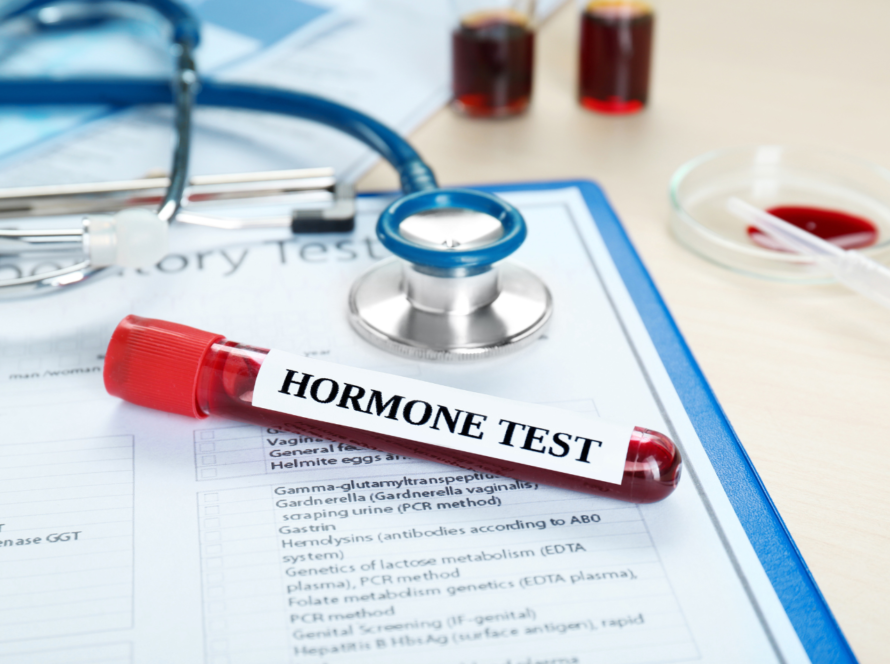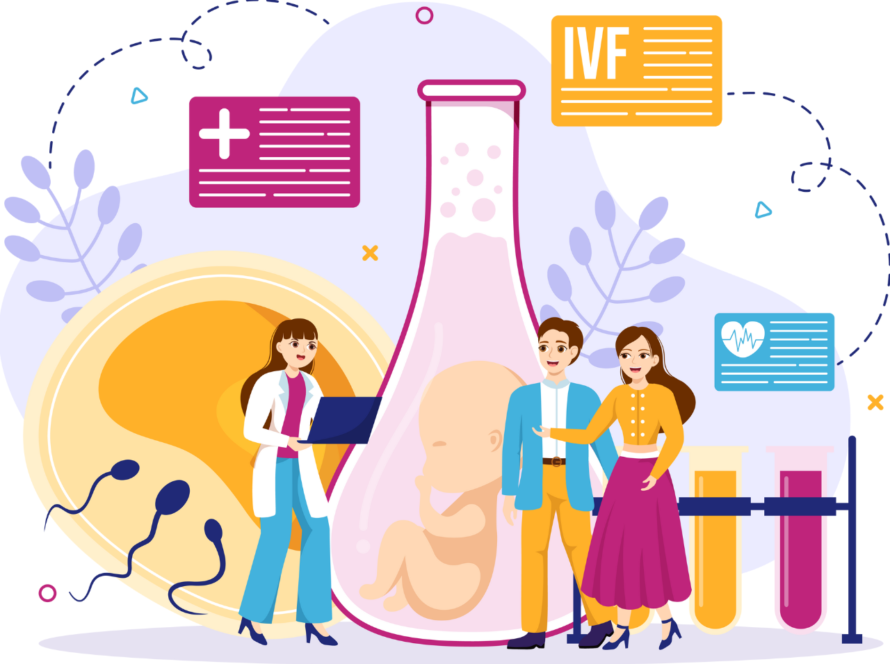What is Endometriosis?
Endometriosis is a chronic medical condition where the tissue similar to the lining of the uterus (endometrium) grows outside the uterus, commonly on the ovaries, fallopian tubes, and pelvic tissues. This tissue continues to act as it normally would—thickening, breaking down, and bleeding with each menstrual cycle—but it has no way to exit the body, causing pain, inflammation, and scar tissue.
At Mithran Fertility Center, we regularly treat women with endometriosis who face challenges with conception. Understanding how this condition affects fertility is the first step toward seeking the right treatment.
How Endometriosis Affects Fertility
Endometriosis can impact fertility in several ways:
- Affects ovulation by damaging ovarian tissue
- Blocks fallopian tubes, preventing the egg and sperm from meeting
- Creates an inflammatory environment that interferes with embryo implantation
- Disrupts hormone balance and menstrual cycles
According to studies, 30–50% of women with endometriosis may experience infertility, but with the right treatment, many can conceive.
Common Symptoms of Endometriosis
- Severe menstrual cramps (dysmenorrhea)
- Pain during intercourse
- Heavy or irregular periods
- Pelvic pain outside of menstruation
- Painful bowel movements or urination (especially during menstruation)
- Fatigue, bloating, and nausea
What Causes Endometriosis?

While the exact cause is unknown, possible factors include:
- Retrograde menstruation (when menstrual blood flows back through the fallopian tubes)
- Hormonal imbalances, especially excess estrogen
- Genetics (family history of endometriosis)
- Immune system dysfunction
Diagnosis of Endometriosis
Diagnosis usually involves:
- Pelvic examination
- Ultrasound or MRI
- Laparoscopy (a minor surgical procedure to view and remove endometrial tissue)
At Mithran Fertility Center, we use advanced diagnostic tools to detect even mild endometriosis and tailor treatments to improve fertility outcomes.
Treatment Options for Endometriosis
1. Medications
- Hormonal therapy (to control the growth of endometrial tissue)
- Pain relievers (NSAIDs for cramps and inflammation)
2. Surgery
- Laparoscopic surgery to remove endometrial implants and scar tissue
- Improves natural conception chances or enhances IVF success
3. Assisted Reproductive Techniques (ART)
- IUI (Intrauterine Insemination) may be helpful in mild cases
- IVF (In Vitro Fertilization) is often recommended for moderate to severe endometriosis
- Egg freezing for women with declining ovarian reserve
Lifestyle Tips to Manage Endometriosis and Improve Fertility
- Follow an anti-inflammatory diet (rich in omega-3s, leafy greens, and antioxidants)
- Reduce stress through yoga and meditation
- Maintain a healthy weight and avoid processed foods
- Avoid smoking and limit alcohol
When to See a Fertility Specialist
If you’ve been trying to conceive for over 6 months and have symptoms of endometriosis, early consultation with a fertility expert can improve your chances of success.
📍 Mithran Fertility Center specializes in diagnosing and treating fertility issues caused by endometriosis with personalized treatment plans.
FAQs
Endometriosis is a condition where tissue similar to the lining of the uterus (endometrium) grows outside the uterus — commonly on ovaries, fallopian tubes, or pelvic organs. It can cause inflammation, scar tissue, and adhesions that may block egg release or sperm-egg interaction, making it harder to conceive naturally.
Typical symptoms include painful periods (dysmenorrhea), pain during or after sex, pelvic pain, heavy bleeding, fatigue, and sometimes digestive issues. However, some women with endometriosis have no symptoms but may still struggle with infertility.
Yes, many women with endometriosis can conceive naturally, especially in mild or moderate cases. However, moderate to severe endometriosis can reduce fertility. Assisted reproductive treatments like IVF often improve chances of pregnancy for those affected.
Endometriosis is often diagnosed through a combination of symptoms, pelvic exams, ultrasounds, and sometimes laparoscopy (a minimally invasive surgery). A proper diagnosis is essential for creating a personalized treatment plan — especially when trying to conceive.
Treatment depends on severity and personal goals. Options include hormonal therapy to manage symptoms, laparoscopic surgery to remove endometrial lesions, and assisted reproductive techniques like IUI or IVF. Your fertility specialist will recommend the best approach based on your individual case.
Conclusion
Endometriosis doesn’t mean you can’t conceive—it just means you might need a bit more support. With the right diagnosis and expert care, many women with endometriosis go on to have healthy pregnancies.
If you suspect endometriosis or have been struggling with fertility, contact Mithran Fertility Center today. We’re here to support your journey toward parenthood.




